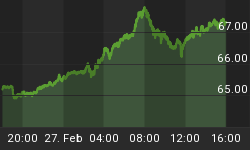Japan, whose monetary policy is by far the world's most expansive, just reported retail sales that soared on the wings of all that newly-created currency. Just kidding. Retail sales tanked:
Japan Retail Sales Slump Flashes Warning Signal for Kuroda
(Bloomberg) - Japan's retail sales fell in March the most since 1998, cutting against central bank chief Haruhiko Kuroda's view that cheaper energy will give a boost to the world's third-biggest economy.
Sales dropped 9.7 percent from a year earlier, when there was a run-up in purchases ahead of an April sales-tax increase, according to trade ministry data released Tuesday. Sales sank 1.9 percent from the previous month, compared with a gain of 0.6 percent forecast by economists in a Bloomberg survey.
The weak reading on consumer spending comes ahead of this week's Bank of Japan policy decision and economic outlook that could highlight waning momentum in inflation. Kuroda has said cheaper oil may crimp price gains in the near term, while eventually fueling growth and inflationary pressures.
"It's becoming clear that Japan's recovery is very sluggish," said Kiichi Murashima, an economist at Citigroup Inc. "With a tight labor market and better consumer sentiment, we don't have to change the view that spending will pick up gradually. But uncertainties are growing about the strength of the economy and that's worrisome for the BOJ."
Marcel Thieliant at Capital Economics and Yuji Shimanaka at Mitsubishi UFJ Morgan Stanley Securities Co. were the only two economists among 34 respondents in a Bloomberg survey that forecast the BOJ will expand unprecedented monetary easing at Thursday's meeting. Murashima sees the BOJ adding to easing in July, while a majority of economists surveyed forecast a boost by the end of October.
Inflation Outlook
The yen was little changed at 119.08 per dollar, bringing its drop to 8.6 percent since Kuroda led a divided policy board on Oct. 31 to increase the pace of the BOJ's asset purchases. The Topix index of shares advanced 0.7 percent.
Kuroda has repeatedly said the central bank will continue to apply stimulus until consumer price gains are stable around its 2 percent target. The BOJ's main gauge showed inflation slowing to zero in February, weighed down by oil price declines of more than 40 percent in the past year.
The BOJ in January lowered its outlook for core inflation to 1 percent from 1.7 percent for this fiscal year through March 2016, the second cut under Kuroda's governorship since March 2013.
The central bank appears to be wavering in its commitment to stimulus, Kozo Yamamoto, an adviser to Prime Minister Shinzo Abe and advocate of reflationary policies, said in an interview.
Without aggressive new measures by the BOJ to spur prices, Yamamoto said he will start agitating for legislation to enshrine the 2 percent inflation target.
Because current developed-world economic policies are experimental pretty much across the board (zero and now negative interest rates, the war on cash, massive deficits, even more massive unfunded liabilities and derivatives books) the data now coming in have theoretical as well as practical implications. They answer questions about limits; that is, about what happens when certain policy tools are taken to their logical extremes. How negative can interest rates go, for instance, before they stop inducing consumers to borrow? How much debt can a system take on before new debt stops generating growth? And how much currency can be pumped into an economy before people stop treating it like money?
Economists don't know the answer to these questions (though some of the really bold and/or delusional ones think they do). So what happens this year and next will define a whole generation of economic theory. And while it's too soon to say anything with certainty, the early results are discouraging for Keynesians who believe that the problem is too little debt and insufficiently negative interest rates.
Japan has been creating new currency on a scale that, relative to the size of its economy, dwarfs the Fed's recent QE program. A bunch of its bonds trade with negative interest rates and its government continues to run huge deficits. And despite all this, its people will buy less stuff this year than last while inflation drifts towards zero. Limits, in short, are starting to appear.
The Bank of Japan is meeting next week under growing pressure to up the ante with even more money creation and lower interest rates. If it agrees, we'll get some really good data. Stay tuned.















